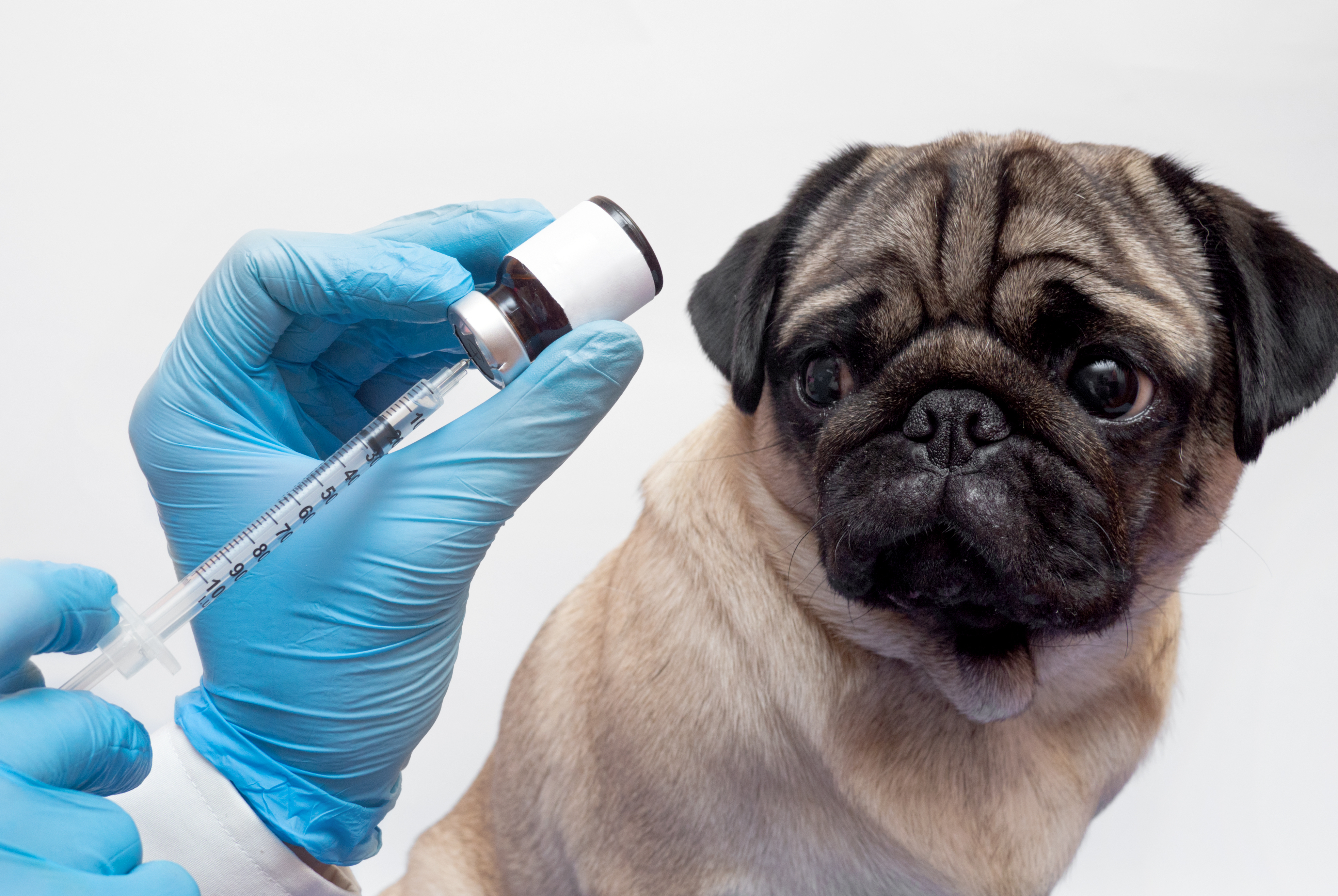Annual vaccination of pets became the accepted (and recommended) standard from the 1950s through to the 1990s (1). Some industry experts began to question whether animals were being over-vaccinated when they began to find tumours in the parts of the body where the vaccine was usually injected....

In Australia, the AVA issued a revised policy in June 2009 stating that in most cases core vaccines need not be administered any more frequently than triennially, or even less so under certain circumstances, such as if your pet is kept inside and less likely to come into contact with these viruses (1).
What exactly is a titer test?
A titer test is test that measures the level of antibodies in your pet's body. They can be used to determine the effectiveness of a vaccine but also the presence of any natural immunity towards disease.
One disadvantage of titer testing is that while most vaccines do last longer than the manufacturer suggest (leading to potential over-vaccination), low levels of antibodies in titer tests can be hard to interpret. It does not necessarily mean the aninal is more at risk.
Your puppy and the vaccine schedule
The immunity that a puppy obtains from it's mum wears out somewhere between the age of 6 to 16 weeks of age. Unfortunately there is no way of knowing when that time is for each individual puppy and whilst there is still a high level of antibodies they will unfortunately prevent the vaccine being taken up by the puppy's immune system.
This is why there is a vaccination protocol of set times (most commonly 6 to 8 weeks, then 12 weeks then 16 weeks) for vaccination to cover the times when MOST puppies maternal antibodies have decreased sufficiently to allow the vaccine to take.
Puppy vaccinations are important but after the initial puppy vaccines have been completed, it's worth discussing with yout Vet the option of having titre testing. There is now more concern that vaccinating this often may in fact cause the immune system to have problems such as auto-immune diseases or skin allergies etc. Keep in mind this seems to only be a problem for SOME dogs.
Yearly check-ups
Yearly check ups are important for a few reasons – one is to maintain a relationship with your Vet and also ensure that the dog is comfortable in the Vet Hospital environment. This is important in an emergency so the client and dog are familiar with their Veterinary Hospital.
The other reason is so that any things that might be missed are picked up early. Ask the Vet to do a thorough check up – abdominal palpation, ears, eyes, teeth, heart etc.
The abdominal palpation, for instance, may pick up the beginnings of an abdominal tumour. An oral exam might show that the teeth are severely coated in thick calculus and some may even require extraction. A general examination and discussion of what the dog is doing at home may reveal the beginnings of heart or renal disease picked up before it becomes advanced.
If your pet has a negative reaction to any vaccination, such as a loss of appetite or a swollen face, contact your vet immediately and report the case to the APVMA on 1800 700 583.
References
1. Choice article - Dog and cat vaccinations


